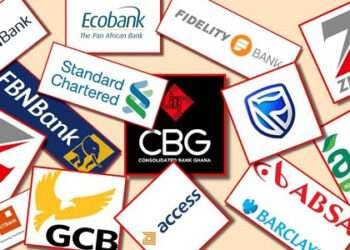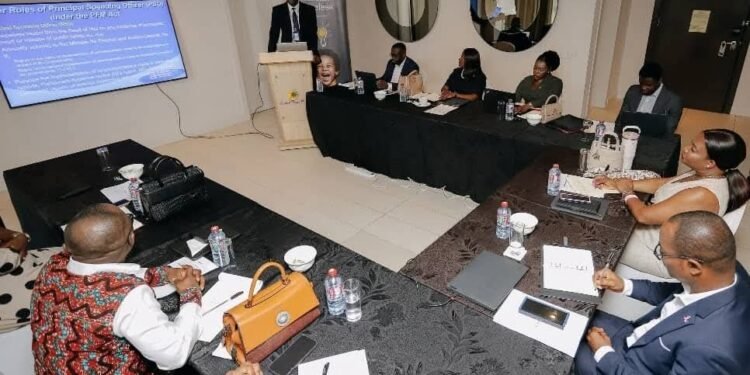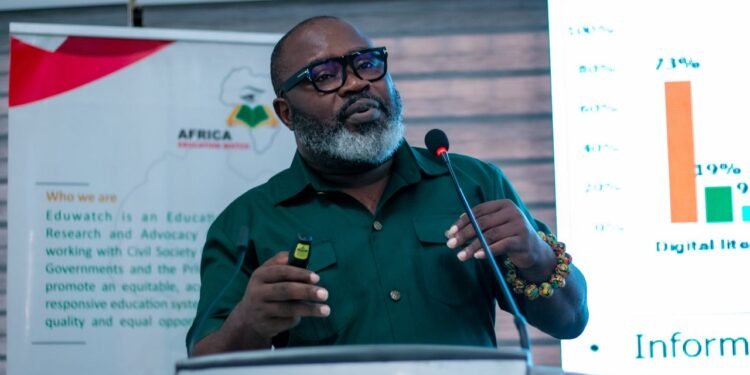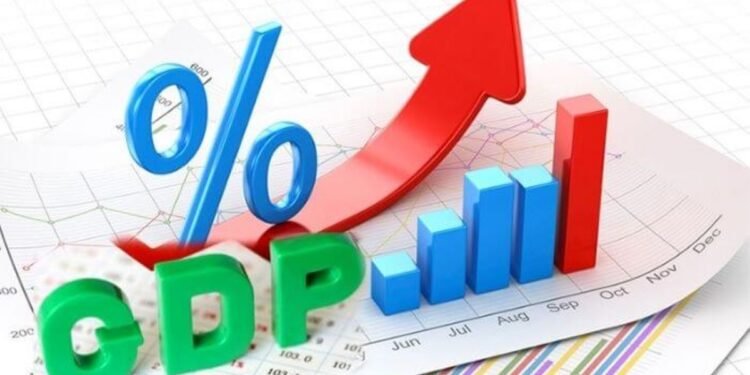The Ghana Association of Bankers (GAB) has moved swiftly to clarify growing public concern surrounding over-the-counter withdrawals of foreign currency, particularly the U.S. dollar.
Contrary to speculation stemming from comments made by a Bank of Ghana (BoG) Board Member, the GAB has confirmed that there is no official directive halting such withdrawals.
According to the Chief Executive Officer of the Association, Mr. John Awuah, all licensed banks continue to operate within the existing regulatory framework that allows foreign currency withdrawals when properly justified.
The statement by Mr. Awuah follows recent remarks made by Dr. Isaac Adongo, a Board Member of the Bank of Ghana, who implied during a media interview that over-the-counter foreign currency withdrawals had been suspended. This sparked confusion and raised concerns among customers and business owners who rely on foreign currency for legitimate international transactions.

In a firm response, Mr. Awuah emphasized that banks operate based on formal instructions issued by the Bank of Ghana and not on personal comments made by individual board members. “I can say on authority that as a community of banks, we do not have any directive that bars over-the-counter withdrawal of USD or any foreign currency,” he said.
Banks Take Orders from the BoG Governor; Not Individual Board Members
Mr. Awuah was unequivocal in stressing the need for clarity in communication between regulators and financial institutions. He pointed out that while Dr. Adongo serves on the board of the BoG, individual directors do not possess the authority to issue instructions to banks.
“With all due respect to the board member who spoke, Dr. Isaac Adongo, we do not take instructions from directors of the board. We take instructions from the Bank of Ghana under the pen of the Governor.”
Mr. John Awuah
While assuring the public that foreign currency withdrawals remain permissible, Mr. Awuah also highlighted the need for customers to provide legitimate reasons when accessing foreign exchange at the counter.
This requirement is not new and remains a standard measure to prevent misuse and ensure the effective allocation of forex resources. “You cannot just show up and withdraw foreign currency without justification. But there is no blanket prohibition,” he noted.
The statement suggests a balanced regulatory approach that supports customer access to their funds while maintaining prudence in foreign exchange management.
Maintaining Stability in the Forex Market
Mr. Awuah further touched on the broader economic context, praising recent efforts by the BoG to stabilize the cedi. He acknowledged the notable improvement in the local currency’s performance against the U.S. dollar, attributing it to sound monetary policies and disciplined market interventions.
“We’ve witnessed fantastic currency performance. As a community, we must help sustain this stability,” he said, urging stakeholders, including the public, to be cautious about spreading unverified information that could undermine market confidence.
The clarification from the GAB comes at a time when the BoG has introduced various policy tools to reinforce the stability of the Ghanaian cedi. These include tightening foreign exchange regulations, improving transparency in forex transactions, and supporting liquidity in the banking system. The positive trend in the cedi’s exchange rate over the past few months signals that such interventions may be yielding the desired outcomes.
However, misinformation and misinterpretation of policy intentions can create unnecessary panic, something the GAB appears keen to prevent with its latest statement.
The Ghana Association of Bankers has reiterated that there is no directive from the Bank of Ghana halting over-the-counter foreign currency withdrawals. Customers may continue to access their funds, provided they follow the existing due processes. The clarification also serves as a reminder that only the Governor of the Bank of Ghana or designated officials have the mandate to issue formal directives to banks.
READ ALSO: GH¢1.23bn Recorded in Secondary Bond Market as Activity Eases























